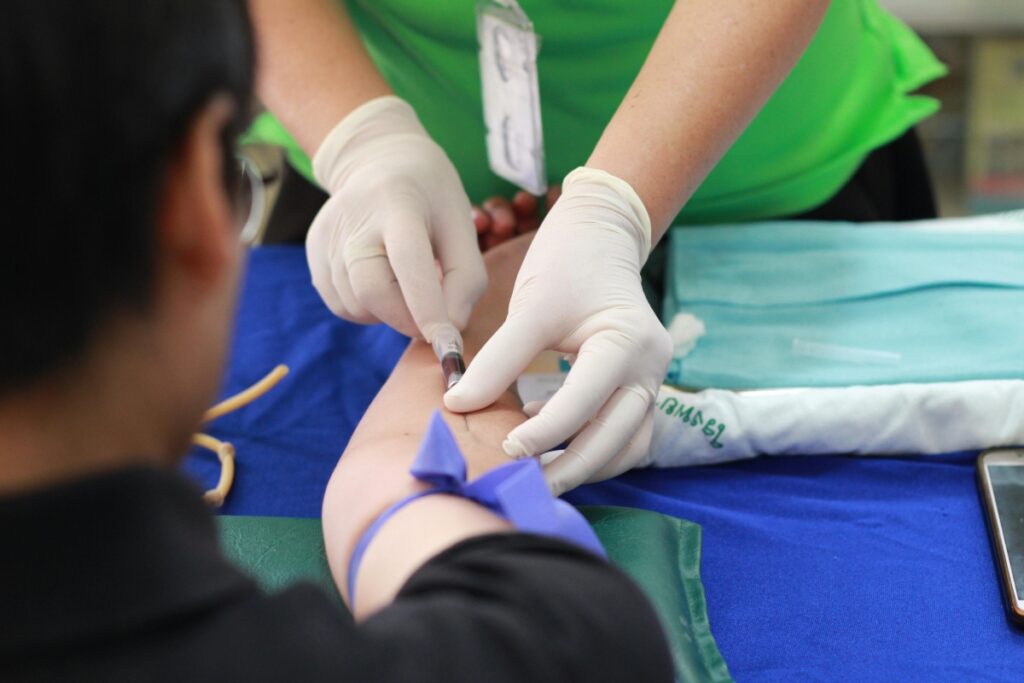Ketamine has emerged as a groundbreaking option for individuals struggling with depression, especially those who do not respond to traditional antidepressant medications such as SSRIs. Its effectiveness lies in its unique mechanism of action, targeting glutamate receptors in the brain to promote neuroplasticity. Unlike typical antidepressants, which can take weeks to show results, ketamine provides fast-acting relief, often reducing depression symptoms within hours of treatment. This makes it an effective treatment for those experiencing severe depression or suicidal ideation.
Studies and clinical trials, including those conducted at institutions like Yale, have demonstrated ketamine’s antidepressant effects, particularly in treatment-resistant depression. Ketamine infusion therapy and esketamine nasal spray, both of which are FDA-approved for certain mental health conditions, are commonly used methods in a clinical setting. These treatments offer hope for individuals who have found traditional options insufficient, marking ketamine as a transformative tool in modern psychiatry.
What Is Ketamine Therapy Exactly?
Ketamine therapy is a medical treatment that utilizes ketamine, an anesthetic with powerful antidepressant effects, to address mental health conditions such as depression and mood disorders. Originally developed for use as an anesthetic in surgical procedures, ketamine has gained recognition for its ability to treat severe depression and suicidal ideation, particularly in individuals who have not found relief through traditional antidepressants like SSRIs. Administered in a controlled clinical setting, ketamine therapy typically involves intravenous infusion or the use of esketamine, a nasal spray approved by the FDA.
The primary goal of ketamine therapy is to enhance neuroplasticity by stimulating glutamate receptors in the brain. This process helps repair synapses and improve communication between neurons, potentially alleviating symptoms of depression and other mental health conditions. The treatment is fast-acting, often providing relief within hours of administration, making it an appealing option for those in urgent need. Ketamine therapy is generally offered by specialized providers and ketamine clinics, where healthcare professionals tailor treatment options to meet individual needs.
How Long Does Ketamine Therapy Take to Work?
Ketamine therapy is known for its rapid onset of effects compared to traditional antidepressants, which can take weeks to deliver noticeable improvements. Most patients begin to feel relief from depression symptoms within hours to a few days after their first dose. The timeline for effectiveness varies depending on the individual’s mental health condition, the method of administration (e.g., intravenous infusion or esketamine nasal spray), and the severity of symptoms. Below is a general breakdown of the typical patient experience during ketamine therapy.
Immediate Effects After the First Session
Patients often report feelings of dissociation or relaxation during the first ketamine infusion or intranasal administration, which can last for about 30-90 minutes. These immediate effects are not directly antidepressant but indicate that ketamine is interacting with the brain’s glutamate system.
Relief Within 24-48 Hours
Within one to two days, many individuals experience a noticeable reduction in depression symptoms, including alleviation of suicidal thoughts and improved mood. This fast-acting response is a hallmark of ketamine’s effectiveness for treatment-resistant depression.
Sustained Improvement After Multiple Sessions
For most patients, significant and lasting relief is achieved after completing a series of 6-8 ketamine sessions over two to three weeks. During this phase, neuroplasticity enhances communication between synapses, further stabilizing mood.
Long-Term Maintenance and Follow-Ups
To maintain the antidepressant effects of ketamine, many individuals require periodic maintenance sessions or adjunct therapies such as psychotherapy or traditional antidepressant medications. The frequency of follow-ups depends on the individual’s response and needs.
Is Ketamine Therapy Effective at Treating Depression?
Ketamine therapy has proven to be highly effective at treating depression, particularly in individuals with treatment-resistant depression who have not responded to traditional antidepressant medications. Its unique mechanism of action, targeting the glutamate system rather than serotonin pathways, sets it apart from SSRIs and other antidepressants. By enhancing neuroplasticity and repairing synaptic connections, ketamine can rapidly alleviate symptoms of depression, including severe cases with suicidal ideation.
Clinical trials and research, including those leading to the FDA approval of esketamine nasal spray, consistently demonstrate ketamine’s antidepressant effects. In many cases, patients experience a significant reduction in depression symptoms within hours or days of their first treatment, a stark contrast to the weeks traditional medications can take. While not a cure for depression, ketamine therapy offers a promising treatment option, especially when combined with psychotherapy and other mental health interventions for long-term management.
How Long Does Ketamine Therapy Work for Depression?
The duration of ketamine therapy’s effectiveness for depression varies from person to person, depending on factors like the severity of symptoms, the individual’s response to treatment, and whether follow-up sessions are utilized. Typically, the antidepressant effects of a single ketamine infusion can last anywhere from a few days to several weeks. For many patients, a series of 6-8 sessions administered over two to three weeks can provide more sustained relief, with some individuals reporting improvements lasting several months.
To maintain the benefits of ketamine therapy, many healthcare providers recommend periodic maintenance sessions or adjunctive treatments like psychotherapy or traditional antidepressant medications. Maintenance schedules are often tailored to the individual’s needs, ensuring that the effects of ketamine remain as long-lasting as possible. With ongoing advancements in ketamine therapy, its role as a fast-acting and effective treatment for depression continues to grow.
Find the Treatment You Need
If you or a loved one is struggling with depression and traditional treatments have not provided relief, ketamine therapy may be the solution you’ve been searching for. At We Conquer Together, we specialize in evidence-based treatments, including ketamine therapy, designed to address even the most severe mental health conditions. Our compassionate team is committed to helping you regain hope and take the first steps toward a brighter future.
Don’t let depression hold you back any longer. Reach out to We Conquer Together today to learn more about our personalized treatment options and discover how ketamine therapy can make a difference in your life. You don’t have to face this journey alone—let us help you conquer it together.










